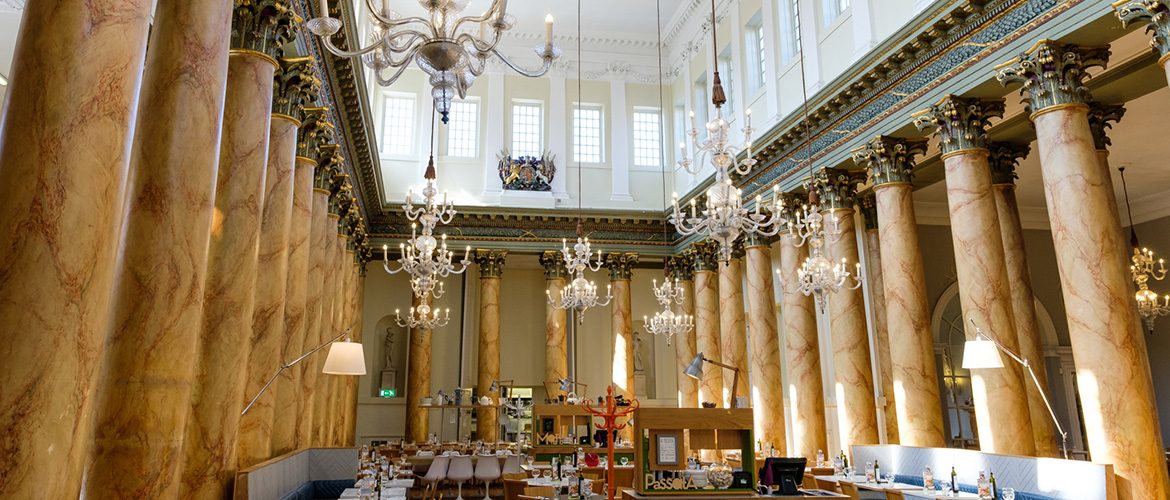Richard Brigham, co-founder of York Past & Present, argues the case for culture over cash
Money seems to be at the centre of every decision in modern York.
At a time when we should be using our rich heritage to guarantee the city’s future as a cultural hub, historically important buildings like the Guildhall, the Assembly Rooms and Reynard’s Garage (once home to Airspeed and City Trams) are now either falling into disrepair or – as in the case of Reynard’s – have vanished forever.
The Assembly Rooms have been transformed into an Italian restaurant and, as for the Guildhall, well, let’s just say that it would require millions of pounds to put it right again.
Why has this happened? How has a city that, in Victorian times, took time to restore its public buildings in pursuit of a better future become a place where monetary matters are placed above heritage?
Of course, in a city as historically diverse as York, it’s practically and financially impossible to keep or maintain every building. Things change, times change and technology changes.
I’m not pointing the finger of blame, but I think there’s a conversation to be had about the way things are currently going in the city and what impact this is likely to have on its future.
Money talks

Money talks louder than ever it seems. There was a time when most residents lived within the city.
Now, however, it seems that housing in York city centre has gone beyond what most people can afford, unless they have £750,000 to £1.5m to spare.
The city is pushing its own residents out, declaring “if you can’t afford it, you can’t live here”.
It seems to me that the divide between the classes has become wider than at any other time in the last 40 years. In fact, it’s more like it was in Victorian times.

But money shouldn’t dominate decisions about our heritage.
While we undoubtedly live in a democracy where we, as citizens, elect the local council and national government, it occurs to me that most decisions made about our city and its heritage are presented to us only after the people in charge have decided what they think is best.
They don’t canvas our opinion first, but rather make a decision and present us with their preferred option.
When a building needs repairing but funding is not readily available, surely we should still ask what we can do to ensure it’s looked after for the future?
Unfortunately, however, that’s not quite how it goes. In the current climate, one or two designs are put forward and we, the public, get to choose which we prefer.
Then, a company comes in, does the work and, generally, transforms the building into something else (the Assembly Rooms is a great example of this).
Public property, private hands

But is selling our heritage the only way to ensure that our historic buildings are safe from dilapidation and disrepair?
That certainly seems to be the case at the moment, perhaps, in part, as a result of the local council feeling the bite of government cuts.
We once had access to many buildings that belonged to the city of York and, therefore, to us as citizens, but as more make their way into private hands, how can we continue to have access and enjoy them?
It’s all very well making them into a restaurant but not all of us want to experience the beauty of our heritage while eating a pizza.
Things in York seem to be going backwards. Where once we strived for democracy, equality and our heritage, now the rule seems to be “if we can’t afford to keep it, sell it”.

The early Victorians tried to create a utopian society, enriched with history, heritage and public access, while modern York citizens have to watch from outside the city walls as our beloved buildings are sold to the highest bidder.
If the Victorians had let everything fall into disrepair or simply sold things off when they became problematic, would we still have the city walls, Clifford’s Tower or the Minster?
So, is it too late to ensure future generations have a city worth inheriting?
I believe we can learn from our past to change the way decisions are made and build a better future.
We also need to start looking at new ways of dealing with our city’s rich history, encouraging new ideas that transform and transcend.
We are all citizens and we have rights, ideas and, perhaps most importantly, a voice.
As Dylan Thomas magnificently said: “Do not go gentle into that good night. Old age should burn and rave at close of day. Rage, rage against the dying of the light.”
